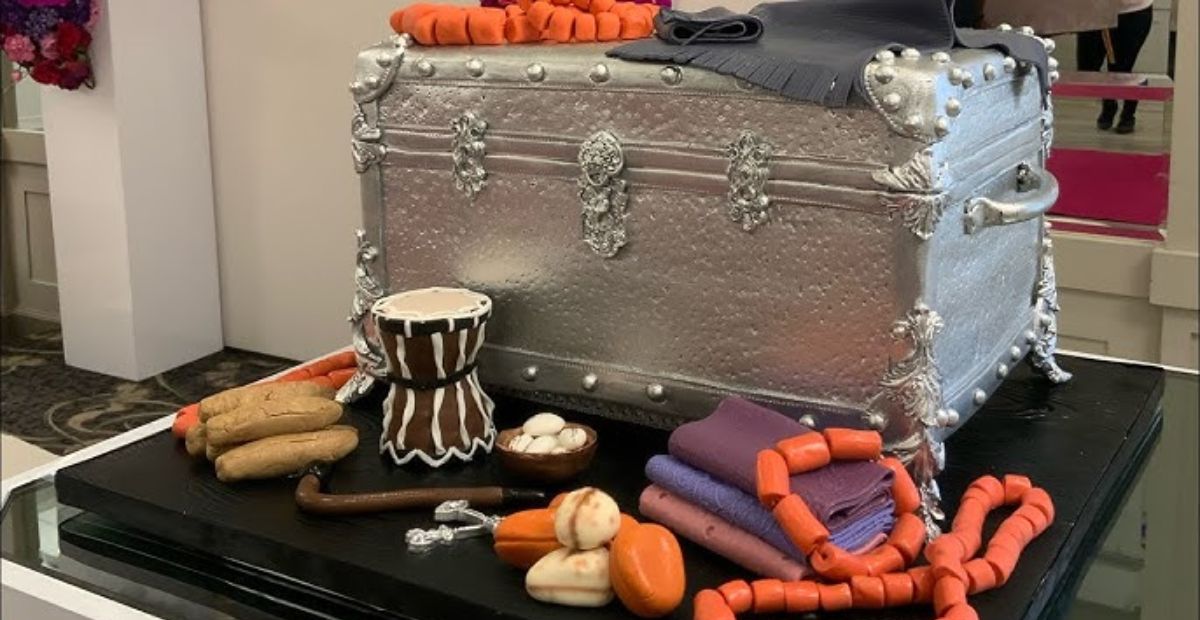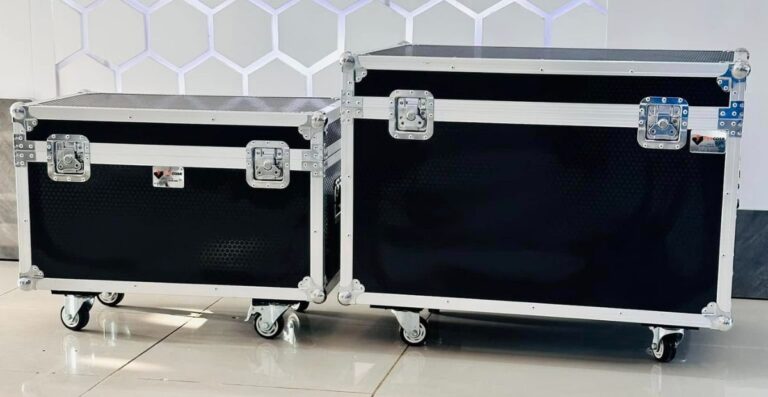Nigeria is a culturally diverse country with over 250 ethnic groups, each boasting its own unique customs and marriage rites. Traditional weddings remain a vital part of Nigerian life, often reflecting deep-rooted heritage and values. Among the many elements of these ceremonies, one stands out both symbolically and practically, the trunk box.
Though modest in appearance, the trunk box is packed with significance. It’s more than just a storage item, it’s a vessel of culture, tradition, and emotion, often forming a central part of the bride’s dowry presentation.
Historical Background of Trunk Boxes in Marriage Traditions
Colonial Influence and Local Adaptation
Trunk boxes made their way into Nigerian marriage customs during the colonial era when Western-style storage chests became widely available. Locals adapted this imported item into a deeply rooted traditional practice, using it to store the bride’s belongings.
Evolution from the Past to Present
Initially plain and utilitarian, today’s trunk boxes have evolved. Modern versions are often customized with intricate designs, family insignias, or even the couple’s names. While the style has changed, the cultural essence remains.
The Cultural Significance of Trunk Boxes
Symbol of Womanhood and Responsibility
In many Nigerian cultures, the trunk box is a symbol of maturity and readiness. A young woman receiving her trunk box is seen as stepping into her role as a wife and homemaker.
A Gesture of Preparedness
A well-prepared trunk box reflects the bride’s preparedness for marital responsibilities, emotionally, spiritually, and domestically.
Ethnic Variations Across Nigeria
Yoruba Perspective
Among the Yoruba, the trunk box is called “Apoti Iyawo.” It’s packed with everything the bride might need and is often color-coordinated to match the wedding theme.
Igbo Cultural Significance
In Igbo culture, trunk boxes, often part of the bride price list, hold symbolic items like wrappers, head ties (gele), and cooking utensils, symbolizing the bride’s readiness for domestic life.
Hausa Traditions
For the Hausa people, the lefe ceremony includes beautifully arranged gifts in trunk boxes presented to the bride. This signifies wealth, respect, and goodwill from the groom’s family.
What is Typically Packed in Trunk Boxes?
Items packed inside trunk boxes are carefully chosen to reflect the bride’s new life.
- Clothing: Traditional attire, wrappers, lace, undergarments
- Accessories: Jewelry, shoes, head ties
- Toiletries: Perfumes, soaps, lotions, makeup
- Kitchen Items: Pots, plates, cutlery, cooking utensils
Each item tells a story about the bride’s upbringing and her family’s investment in her future.
Symbolism Behind the Items in the Trunk Box
Every item inside the trunk box carries cultural weight:
- Clothing and Accessories: Represent elegance, dignity, and respectability
- Cooking Tools: Indicate the bride’s readiness to manage a household
- Toiletries: Emphasize cleanliness and self-care, important values in Nigerian culture
Presentation of the Trunk Box During Marriage Ceremonies
The trunk box is typically presented by the bride’s family during the traditional engagement ceremony.
Who Presents It?
- Usually the bride’s mother or female relatives
When and How It’s Displayed
- Arranged beautifully and carried in procession
- Opened during the ceremony to showcase its contents
Comparison with Other Bridal Gift Traditions Globally
Dowry and Bridal Trousseau
Similar to the Indian dowry or the Western bridal trousseau, the Nigerian trunk box represents a bride’s passage into marriage.
Western Bridal Showers
While the Western bridal shower is about fun and gifts from friends, the trunk box is a deeply personal and familial tradition, tied to generational identity and pride.
Trunk Boxes as a Status Symbol
In modern times, trunk boxes have taken on additional meaning:
Use of Designer Boxes and Quality of Items
Luxury brands, engraved metals, and customized finishes have made trunk boxes a status item at weddings.
Influence of Social Class
The more lavish the trunk box, the more it reflects the family’s wealth and social standing, though cultural authenticity still trumps material showmanship.
Emotional and Sentimental Value for the Bride
Trunk boxes often include personal letters, heirloom jewelry, or spiritual items from mothers or grandmothers.
Connection with Motherly Advice
Mothers often pack the trunk box with emotional wisdom—tips on marriage, prayers, and traditional values.
Symbol of Transition and Blessing
It marks the bride’s transformation from daughter to wife, a rite of passage laden with tradition.
How Modern Trends Are Redefining Trunk Boxes
Today’s brides are blending old and new:
- Customization: Names and wedding dates printed on boxes
- Branding: Social media hashtags and monograms
- Luxury Elements: Velvet-lined interiors, LED lighting, and lockable compartments
Role of Parents and Guardians in Preparing Trunk Boxes
Maternal Responsibility
Mothers traditionally bear the responsibility of preparing and packing the trunk box, ensuring that cultural values are embedded in each item.
Family Contributions and Support
Extended families often contribute financially or by gifting special items like gold jewelry, native attire, or handmade crafts.
Economic Impact and Business Around Trunk Boxes
The demand for trunk boxes has given rise to a niche industry:
- Local Artisans: Specialize in handcrafted, culturally-themed boxes
- Retail Stores: Offer pre-packed bridal trunk packages
- Wedding Planners: Provide trunk box setup and display services
Trunk Boxes in Media and Popular Culture
Depictions in Nollywood
Trunk boxes are often featured in Nollywood films, highlighting their central role in traditional ceremonies.
Social Media Influences and Hashtags
Brides now share their trunk box setups on Instagram and TikTok under hashtags like #NigerianTrunkBox or #BrideEssentials.
Preserving the Tradition for Future Generations
To keep this tradition alive:
- Families are educating younger generations about the cultural significance
- Hybrid weddings now include traditional trunk box presentations alongside modern receptions
Frequently Asked Questions (FAQs)
Q1: Why is the trunk box important in Nigerian marriages?
It symbolizes the bride’s readiness, family heritage, and cultural pride.
Q2: What items are most commonly found in a trunk box?
Clothing, toiletries, jewelry, kitchen utensils, and sometimes spiritual items.
Q3: Do all tribes in Nigeria use trunk boxes?
Yes, although the name, presentation, and contents may vary across ethnic groups.
Q4: Can a bride customize her trunk box?
Absolutely! Many brides today opt for personalized boxes with their names and themed decor.
Q5: Is the trunk box still relevant in modern weddings?
Yes, it has evolved but remains a cherished and symbolic element of traditional ceremonies.
Q6: Where can I buy a trunk box in Nigeria?
They’re available from local artisans, wedding vendors, and online bridal stores.
Conclusion
Trunk boxes are more than just containers, they’re vessels of tradition, love, and heritage. From their symbolic contents to their beautiful presentation, they play an indispensable role in Nigerian traditional marriages. As trends evolve, trunk boxes continue to adapt while holding onto their cultural roots, ensuring they remain a proud part of Nigerian wedding customs for generations to come.

